Think of a dynamic, predicated aspect language. Aspects could be invoked (i.e., methods) instead of or before and after an original method. These aspects are switched on and off which happens at runtime. It could even be, that multiple aspects want to change the same method, which will result in a composition of these aspects into a chain of method calls.
The original method is changed by a loadtime compiler (JPLIS and ASM). I got some bytecode looking something like this:
//## baseMethod ##
aload 0 // this
aload ... // some more arguments
invokedynamic # // call the bootstrap method which returns a callsite to be invoked
The interesting part is that the bootstrap method should work in a specific way:
- Return a concatenation of methods with compatible parameter lists. These
MethodHandles are bound to different instances of different types on which they are invoked. - It may be that the resulting
MethodHandleis just bind to other instances, but not to the instance that is calling the bootstrap method. As such, the invocation of the resulting callsite using this should be omitted (the first branch in the alternative below).
It may also happen that the original method is directly called, which is totally okay.
It seems to me that MethodHandles are the right thing to achieve this.
My question would be if everything is achievable in a single bootstrap method as such that I can chain the method calls as shown in the sequence diagram using a chain of method handles returned from the bootstrap method that are bound to the callsite.
